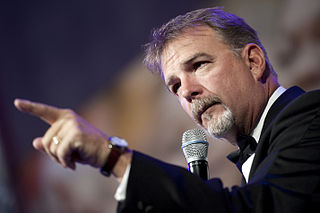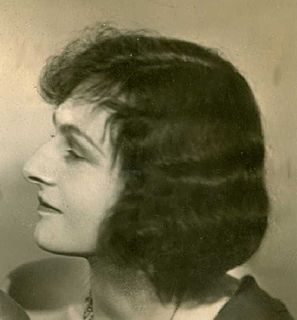A Quote by Auguste Comte
All good intellects have repeated, since Bacon's time, that there can be no real knowledge but which is based on observed facts.
Related Quotes
All good intellects have repeated, since Bacon's time, that there can be no real knowledge but that which is based on observed facts. This is incontestable, in our present advanced stage; but, if we look back to the primitive stage of human knowledge, we shall see that it must have been otherwise then. If it is true that every theory must be based upon observed facts; it is equally true that facts can not be observed without the guidance of some theory. Without such guidance, our facts would be desultory and fruitless; we could not retain them: for the most part we could not even perceive them.
I really see no harm which can come of giving our children a little knowledge of physiology. ... The instruction must be real, based upon observation, eked out by good explanatory diagrams and models, and conveyed by a teacher whose own knowledge has been acquired by a study of the facts; and not the mere catechismal parrot-work which too often usurps the place of elementary teaching.
[The scientist] believes passionately in facts, in measured facts. He believes there are no bad facts, that all facts are good facts, though they may be facts about bad things, and his intellectual satisfaction can come only from the acquisition of accurately known facts, from their organization into a body of knowledge, in which the inter-relationship of the measured facts is the dominant consideration.
We were Orthodox Jews, but we really didn't deserve it. I mean, bacon - my father said, 'Don't put bacon in the house,' but we had bacon. We didn't keep kosher. And we observed which today would be Conservative Jews. But in those days, we belonged to an Orthodox temple. So we made out we were Orthodox Jews, but we really weren't.
My wife, trying to be helpful, goes to the grocery store and buys this stuff called soy bacon. Let me tell you something: I know soy beans are good for a lot of things. Let's stay out of the bacon market! It says It looks and tastes like real bacon! No it doesn't! It tastes like somebody bacon-flavored a turd, that's what it tastes like!
Let's all be honest here for a second, okay - bacon? Not even that good. Now, I'm not saying that it's bad. I like bacon-wrapped dates, and I've also been known to enjoy a BLT a couple of times a year. What I'm saying is, bacon is fine, but it is objectively not so good that we need bacon-scented sunscreen.
Knowledge signifies things known. Where there are no things known, there is no knowledge. Where there are no things to be known, there can be no knowledge. We have observed that every science, that is, every branch of knowledge, is compounded of certain facts, of which our sensations furnish the evidence. Where no such evidence is supplied, we are without data; we are without first premises; and when, without these, we attempt to build up a science, we do as those who raise edifices without foundations. And what do such builders construct? Castles in the air.
Roger_Bacon" title="Roger Bacon">Roger Bacon expressed a feeling which afterwards moved many minds, when he said that if he had the power he would burn all the works of the Stagirite, since the study of them was not simply loss of time, but multiplication of ignorance. Yet in spite of this outbreak every page is studded with citations from Aristotle, of whom he everywhere speaks in the highest admiration.
Each member of society can have only a small fraction of the knowledge possessed by all, and...each is therefore ignorant of most of the facts on which the working of society rests...civilization rests on the fact that we all benefit from knowledge which we do not possess. And one of the ways in which civilization helps us to overcome that limitation on the extent of individual knowledge is by conquering intelligence, not by the acquisition of more knowledge, but by the utilization of knowledge which is and which remains widely dispersed among individuals.
Intellect begins with the observation of nature, proceeds to memorize and classify the facts thus observed, and by logical deduction builds up that edifice of knowledge properly called science? But admittedly we also know by feeling, and we can combine the two faculties, and present knowledge in the guise of art.
The chief point we must remember is that the great and rapid advance of the physical sciences took place in fields where it proved that explanation and prediction could be based on laws which accounted for the observed phenomena as functions of comparatively few variables - either particular facts or relative frequencies of events.




































